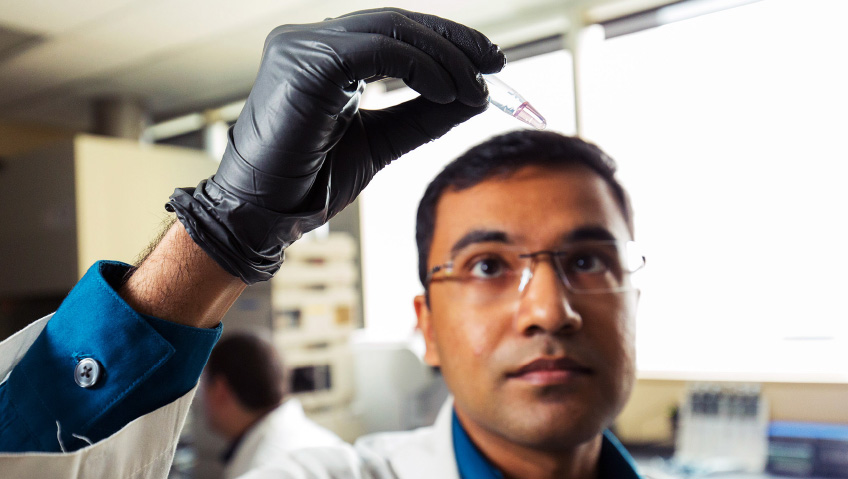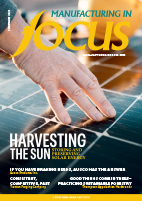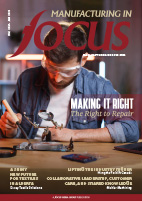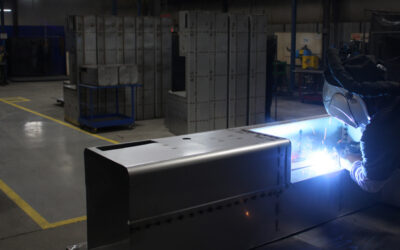These days it’s difficult to remember a time when COVID-19 wasn’t dominating the daily news, when the pandemic and its devastating repercussions weren’t changing and rearranging almost every aspect of our personal lives and business worlds. While the disease has forced us to socially distance from one another for safety, it’s also brought scientists together in an effort to find a cure — or at least some protection — as quickly as possible. This means involving companies like IMV Inc., a clinical-stage pharmaceutical firm with expertise in cancer immune therapy, in the worldwide fight to bring the pandemic under control in these extraordinary circumstances.
IMV Inc. has an interesting backstory, beginning in the 1980s when Warwick Kimmins, Dean of Sciences at Nova Scotia’s Dalhousie University, and biologist Robert Brown were tasked with helping to control the seal population that threatened fisheries in the coastal waters of Atlantic Canada.
After several failed attempts at creating a contraceptive vaccine, the two tried an oil-based emulsion to protect the antigens and stimulate the immune system, resulting in a level of contraception at close to 90 percent and lasting more than 10 years. In 2004, work began on infectious diseases in humans, and in 2009, focus shifted to human cancers. The name “IMV” officially became the company name in 2018.
Dr. Kimmins’ emulsion-based delivery formulation evolved into the firm’s current, lipid-based DPX platform delivery. An unprecedented delivery platform, DPX has emerged as the company’s key value driver and scientific differentiator. IMV employs the DPX platform for all immunotherapies and vaccine candidates, which gives the company the ability to produce an immune response against cancer cells or viruses.
“We’ve made a lot of progress in the last four years,” says CEO Frederick Ors. “I believe there’s a lot more to do, but I’m very happy with the development. We’ve really moved from a concept to where we have clinical demonstration, and it’s something that has been shown to be a potential new class of treatment for cancer in multiple indications.”
Now at a crossroads moving from the first demonstration to developing a path to market, IMV can work to bring this treatment to patients and get it approved for the first time, he says. “Once we get that done, we can think of major expansion to multiple cancer types and all the lines of therapies, but that’s further down the line from the current focus.”
The most pressing question is, how can IMV get this new treatment approved and to patients?
“Personally, I’ve always been impressed with the technology and I’m very excited about what we’re doing,” says Ors. “We have the right value position at the right time. When you look at the evolution of medical treatment in oncology and radiation, life expectancy has increased more than double in the last hundred years or so, and now we live longer. We’ll probably be able to further increase the life expectancy, but we’re getting to a point where we’re maxing out the duration of life.”
For Ors, this means re-evaluating what makes life enjoyable, and how to ensure that those who encounter battles with cancer later in life receive expert care that not only fights cancer, but keeps the patient comfortable as well.
“I believe that medicine needs to look more especially at oncology and quality of life,” he says. “Chemotherapy is a great treatment and it can save your life; but there’s an age where that might not be the best solution. What you want is a good quality of life at the end of your life, and not something that just makes you uncomfortable and not able to enjoy the last part of your life.”
There’s an important medical need currently for chemotherapy, but understanding the damage it can cause is vital as well, he says, and this is exactly the value that IMV brings.
“The new value we’re bringing to the market is really this: can we develop a new class of drugs that’s going to give you efficacy to treat cancer, but without all the toxicity that has been associated with current treatments?” he says. “This way you can really enjoy your life, especially when you’re elderly.”
Immunotherapy is a new class in itself, providing treatment by using the immune system, offering the lowest level of toxicity with no serious adverse effects. The first drugs were approved around 2014, and people who are responding see amazing benefits, going years without cancer and living a normal life.
“This is not what we’re used to typically with chemotherapy and the harsher treatments that you have to stay on – plus have to give away some of the quality of your life because of the toxicity profile of the drugs – in order to benefit,” says Ors. “[With conventional treatments] it’s like you’re saying, ‘If I want to live longer I’m going to have to go through that, and that’s a choice I have to make.’”
This is where immunotherapy is different, and this is why it’s such a commercial and medical success currently, he says.
Ors believes that cancer will increasingly become an aging disease. While incidents of cancer are not growing exponentially around the world and have improved with better healthcare and nutrition, extending life itself will mean more incidents of cancer in an aging population.
Today, IMV Inc.’s incredible work has led the company to engage in the worldwide fight against COVID-19, joining in the quest to contribute to finding a cure or preventative measure to the often deadly pandemic. This year, DPX-Survi-Survivac was evaluated in phase 2 clinical studies in several cancer indications, and other DPX-based formulations were evaluated in oncology as well as infectious diseases, including a vaccine against RSV (Respiratory Syncytial Virus) and another against the SARS-CoV2 that has caused the COVID-19 pandemic.
“Developing a drug or vaccine is one of the more challenging, regulated, complicated things to do,” says Ors. “And that’s for good reason; injecting the drugs into patients needs to be safe and needs to be done with the highest level of quality in terms of manufacturing. This is very difficult when you’re a company like us that is bringing a disruptive innovation in a very conservative kind of industry that is heavily regulated.”
It is virtually impossible to do on your own, he says, and requires partners that can help bring together all the different pieces that are needed. Manufacturing has always been and will always be a big piece of the equation for the development of a drug. So for IMV Inc., it’s been absolutely vital to be able to find those partners to share expertise, additional facilities and capacity. In the case of COVID-19, they are also key in order to accelerate and develop product at the maximum speed possible.
“You don’t want to be on the learning curve, especially now,” says Ors. “We’ve seen a couple of pandemics already; we can’t say this was a surprise. The conventional vaccines that are currently on the market that have been given to millions of people at a time for flu or infant vaccinations weren’t made to respond to pandemics. It’s not the same scenario. This is [where] the new and innovative technologies are the frontrunners.”
Ors says one of the main challenges IMV will face while advancing in this new frontier is the gravity of making decision that will impact the entire population. “It’s the first time in history that we have to make a decision like this,” he says. “If you look at the number of vaccines that have been proven in the last 10 years, there are not so many of them. It’s a very slow process. You’re not treating – you’re preventing by injecting healthy individuals, and the level of intolerance for any safety issues is zero.”
The vaccine needs to be completely safe for anybody in the population, he says, not only for standard adults in good shape, but for those with varying and potentially chronic diseases.
Unlike the tech industry which has advanced hugely in a short period of time, the pharma industry hasn’t experienced the same cycle of development of innovation due precisely to the regulations required for safety. Now, however, advancements are taking place quickly.
“I don’t think we’ve seen anything like this before,” says Ors. “All the new technologies are being brought to trials in record time. They’re all going after the same disease. The level of knowledge and scientific information that’s going to come out of this is just amazing. We’re going to figure out a lot of things and this could change, in my view, the entire industry.”
How soon could an effective COVID-19 vaccine be approved? Unfortunately, no one knows for sure. If natural infections aren’t giving the population long-term protection and every year people get it again, that means vaccines will have to be better. As COVID is new and in many ways still unknown, the future of an effective vaccine is still a ways off, says Ors.
“This is unprecedented. We’re in uncharted territory for sure,” he says. “Everything is compressed in time. This isn’t something we’ve done before. We’ve never done these things with the speed that we’ve been doing it for COVID. That’s probably one of the most important challenges.”
Typically, vaccines are done sequentially, doing phase 1, waiting for results and, if they’re good, moving on to phase 2. Companies don’t generally invest money and resources for the preparation of phase 2 before seeing results. This is exactly why partnering the government and with NGen – a not-for-profit organization that matches manufacturing companies with new technologies to drive advanced manufacturing in Canada – is not only important, but mandatory for companies like IMV Inc., says Ors.
“It wouldn’t be possible without the support of NGen. I don’t see how a company like us would even be able to think of doing all those things.”
Although IMV Inc.’s main work is in oncology, Ors is proud of the work the company is doing to fight COVID around the world. “We believe that it makes sense for us to be involved. The benefits can be multiple, but the most important benefits are better efficacy in the elderly population and immunocompromised patients,” he says. “We can also increase the duration of the response very significantly, so it’s only because we have something to offer that’s dissimilar from anyone else involved in COVID-19 that we’re doing this. Otherwise it would have made no sense.”
IMV Inc. isn’t a big pharma company and can’t compete in terms of speed, but it can offer significant expertise in numerous other areas, working in unity with companies around the world for this worthy common cause. But at the end of the day, says Ors, the IMV team would like to be able to get back to what they do best.
“We are an oncology company, but we can contribute with something that we believe is meaningful,” he says. “We want success for a vaccine. Collaboration makes sense for any company in the world. We’d all like to be able to get back to normal life, but everyone has to work together now. Otherwise it’s just a race of being the first – and if one fails, we all fail.”













